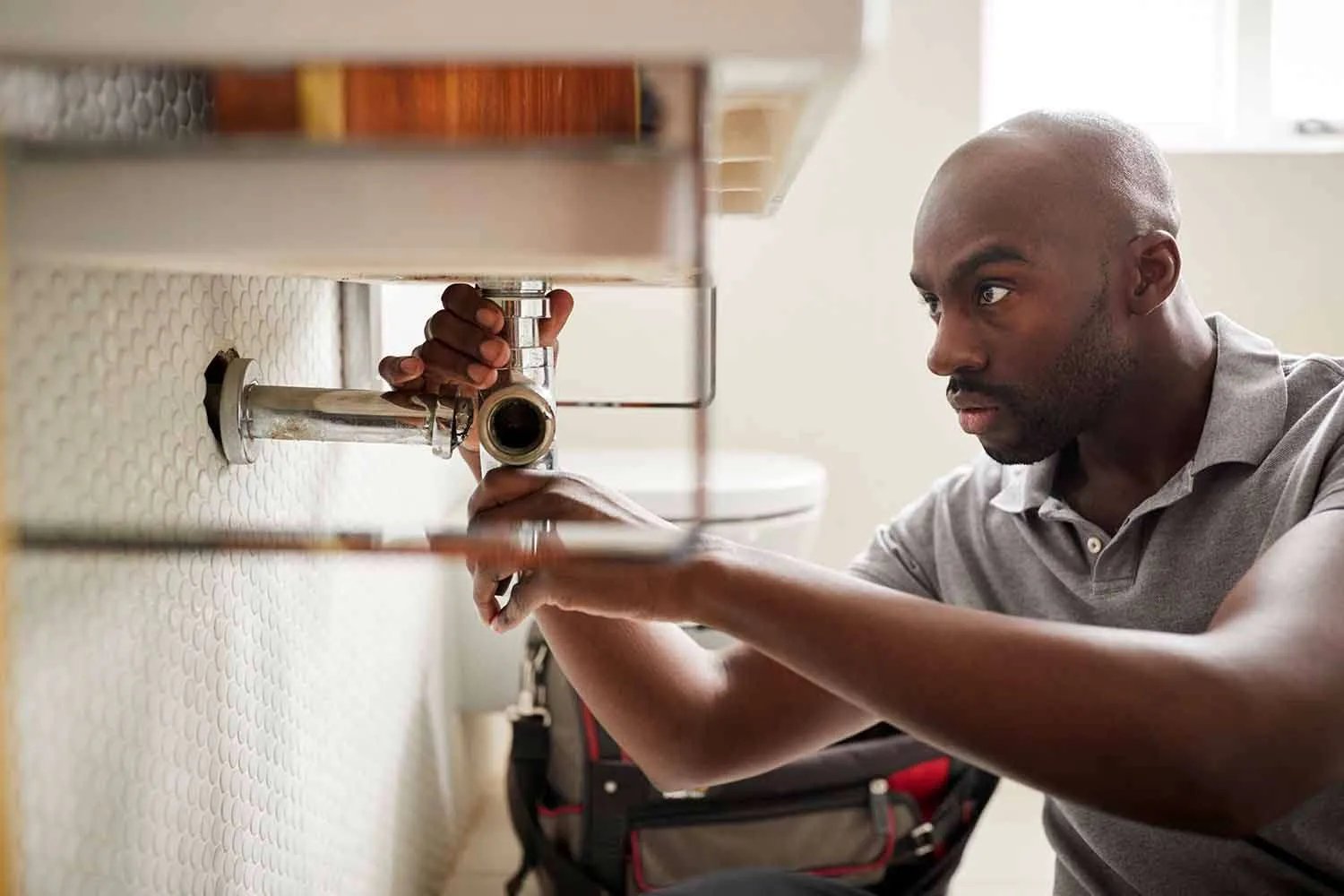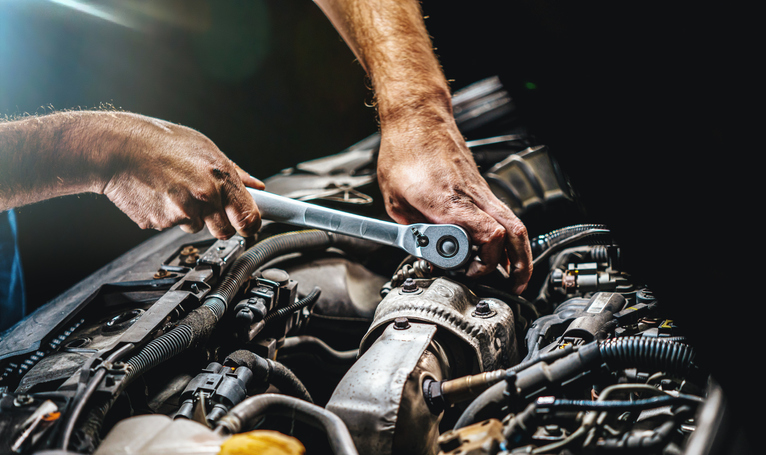Plumbers In Strongsville Ohio install and repair pipes, fixtures, and appliances such as toilets, faucets, showers, water heaters, and dishwashers. They use their hands, tools, and knowledge of engineering and building codes to read blueprints and properly place and connect plumbing components.
Plumbers also need excellent listening skills to understand their customers’ concerns and complaints and troubleshoot issues.

Plumbing systems are complex networks of pipes, fixtures, and appliances that carry water, sewage, and waste away from buildings and regulate indoor climate. Plumbers install and repair these systems to ensure they work correctly. Their duties include laying out piping, setting toilets and faucets, connecting appliances like washing machines and dishwashers to water supply lines, and testing and certifying plumbiplumbers’ building codes and standards. Plumbit also provides emergency services, responding to calls for burst pipes, clogged drains, and other plumbing problems.
Plumbers often start their careers by completing an educational program or apprenticeship. They then must pass an exam to earn a license. This exam covers the technical aspects of plumbing, such as pipe dimensions and materials, but it also tests a plumber’s ability to think critically and solve problems. Plumbers need to be able to assess a situation and choose the right tools and techniques for the job.
During new construction projects, plumbers typically work from blueprints and architectural plans to lay out piping systems. They may use hand and power tools to cut and shape metal piping, and they must understand diagrams of plumbing systems. Plumbers also collaborate with other construction professionals to ensure plumbing is integrated seamlessly into building projects and meets all requirements and regulations.
Plumbers can begin the installation process once a building’s construction is complete. This includes installing hot and cold water supply lines, drains, vent stacks, and gas lines. Plumbers may also connect fixtures like sinks and showers to these supply lines and attach appliances such as water heaters. Once the installation is complete, plumbers test it to ensure all systems are working correctly and there are no leaks.
Because plumbing is such an integral part of our daily lives, it’s important to have reliable and efficient systems. When something goes wrong with our plumbing, it can greatly impact our health and well-being. This is why hiring a professional plumber is so important when you need help with your plumbing system.
Plumbing Repair
A plumbing system carries water, waste, and gases to and from homes and businesses. It regulates indoor climate, provides clean drinking water, flushes toilets, and operates dishwashers and washing machines. Plumbers install, repair, and maintain these systems. They may also inspect pipes and fixtures for problems. They use specialized tools and equipment to perform their duties, such as video cameras for inspections and pressure gauges to test water pressure. Plumbers often work with homeowners and business owners to understand their needs and provide service estimates.
Some of the most common plumbing repairs are for clogged drains and leaks. Homeowners may be able to fix simple clogs by pouring baking soda and vinegar down the drain, but plumbers will be needed for more serious issues. These can include leaking shower heads, dripping faucets, and water heaters that are leaking or not producing heat. Plumbers can determine the source of the problem and implement the correct repair repairs for issues such as water pressure and heating systems. Plumbers need more complex and require a high level of skill. Pclearlyeed to be able to interpret blueprints and other technical documents in order to correctly diagnose and repair these issues. They will also need to have strong troubleshooting skills to find the root cause of the issue and come up with a solution.
Many plumbing jobs are done in people’s homes or businesses, so plumbers need to be courteous and respectful of their customers’ spaces. They should be able to communicate clearly and effectively, explain complicated issues in easy-to-understand terms, and answer questions thoroughly. They should also be able to work well under pressure and meet deadlines.
A plumber can be physically demanding, requiring heavy lifting and working in tight spaces. It can also be stressful, as plumbers are often on-call for emergencies that must be done during regular business hours. For these reasons, it is important for plumbers to have good physical stamina and strength, as well as manual dexterity, to manipulate small parts and tools.
Plumbing Maintenance
Plumbing maintenance services are designed to catch small problems before they escalate into major ones. These services include visual inspections, drain line cleaning, septic tank pumping, and water heater maintenance. These tasks can help homeowners avoid expensive repairs in the future and enjoy a healthy, well-functioning plumbing system.
Leaks are a common plumbing problem that can lead to water damage and mold if left unattended. Plumbers check all faucets, shower heads, toilets, and water heater tanks for signs of leaks and test water pressure to ensure it’s adequate for home needs.
Clogged drains are another frequent plumbing issue that can lead to expensive repairs if addressed slowly. Plumbing professionals recommend installing drain screens or strainers to prevent hair, soap scum, and other debris from clogging drain lines.
Plumbers inspect all visible water and sewer lines for signs of leaks, cracks, corrosion, and other damage. They’ll also look for sagging pipes, improper slope and other conditions that can cause water flow restrictions or line breaks. Plumbing professionals often use a special camera to inspect sewer lines and other hard-to-reach areas.
Leaky faucets, showerheads and toilets can waste gallons of water per day. Plumbers repair these fixtures to save homeowners money and water.
Plumbing experts recommend scheduling yearly maintenance services for homes with older plumbing systems. These services can help homeowners identify and address issues before they turn into major problems that require costly repairs or replacements.
During a plumbing maintenance service, a professional plumber will typically clean out the water heater tank and flush the septic tank to remove any sediment that has built up inside over time. They’ll also check for water leaks around fixtures, verify all drains are functioning properly and make sure there are no issues with the septic tank or main water line.
Performing regular plumbing maintenance can help homeowners reduce their utility bills by ensuring appliances like water heaters and drains are working efficiently. It can also help prevent clogged drains, backed up sewer lines and other costly plumbing issues.
Plumbing Sales
Plumbing sales services can increase a home service business’s average ticket price, boost client loyalty and help the company meet profit goals. Retailers can employ a range of approaches to grow sales in the plumbing category, including offering product upgrades, cross-selling and service maintenance agreements.
Plumbing techs tend to pride themselves on their technical skills, so learning slick-talking sales techniques isn’t always top of mind for them. Nevertheless, learning how to sell to clients can be crucial for their career growth and long-term profitability. Some plumbing businesses even offer their staff with sales role-playing workshops to help them develop their customer communication and upselling skills.
When a plumber first meets with a client, they must be able to convey that they are competent and honest. This is particularly important for first-time customers who are often concerned about the severity of their plumbing issue and the financial investment required to resolve it.
It’s also critical that the plumbing technician present a range of options for their client, not just one solution. Many homeowners are hesitant to buy additional services if they feel cornered by a single option that might not fit their needs. By assessing the entire home’s plumbing and suggesting a comprehensive set of services, plumbers can build rapport and turn up big sales on every call.
Offering membership programs or maintenance agreements is another powerful way to encourage customer loyalty and boost the company’s average ticket. These types of programs reward loyal clients for their ongoing business with the company, while simultaneously increasing its marketing reach and driving new business opportunities.
To get the most out of these programs, a plumbing service should also invest in training its techs to promote them properly. This involves teaching them how to talk about their company’s services to prospective clients, as well as helping them understand the value of different services and how they can benefit their clients. Another important aspect of this training is helping them learn how to give accurate and detailed project estimates to customers and explain the advantages of upselling.
